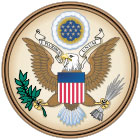WATER | Safe Drinking Water Act - Wikipedia, the free encyclopedia
Publication Type:
Web ArticleSource:
Wikipedia (2010)URL:
http://en.wikipedia.org/wiki/SdwaKeywords:
backgroundNotes:
The Safe Drinking Water Act (SDWA 1974) is the principal federal law in the United States that ensures safe drinking water for the public. Pursuant to the act, the Environmental Protection Agency (EPA) is required to set standards for drinking water quality and oversee all states, localities, and water suppliers who implement these standards.
SDWA applies to every public water system in the United States. There are currently more than 160,000 public water systems providing water to almost all Americans at some time in their lives. The Act does not cover private wells.
In 1996, Congress amended the Safe Drinking Water Act amendments to emphasize sound science and risk-based standard setting, small water supply system flexibility and technical assistance, community-empowered source water assessment and protection, public right-to-know, and water system infrastructure assistance through a multi-billion-dollar state revolving loan fund. They were signed into law by President Bill Clinton on August 6, 1996.
See: Safe Drinking Water Act 101 | Online Training | Drinking Water Academy





